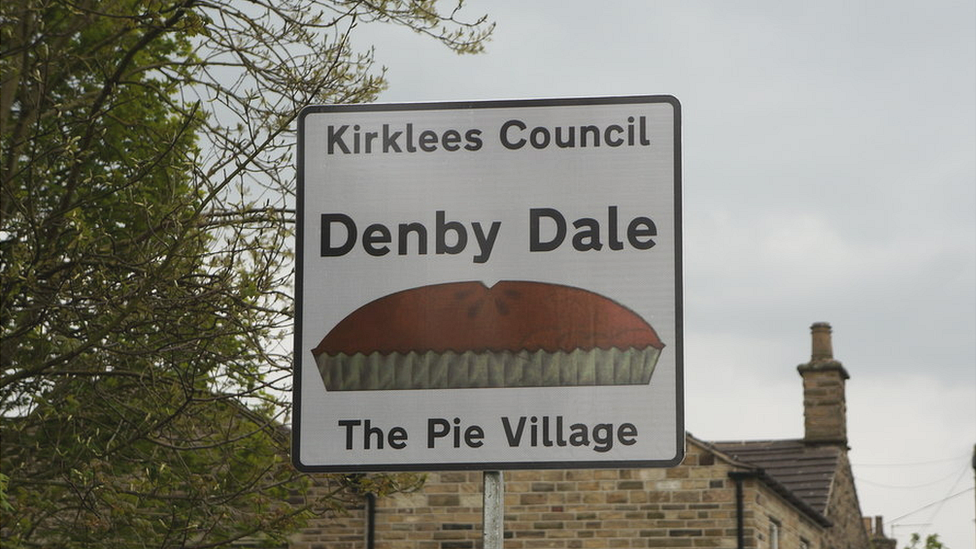'It's like Romeo and Juliet - but for pie'
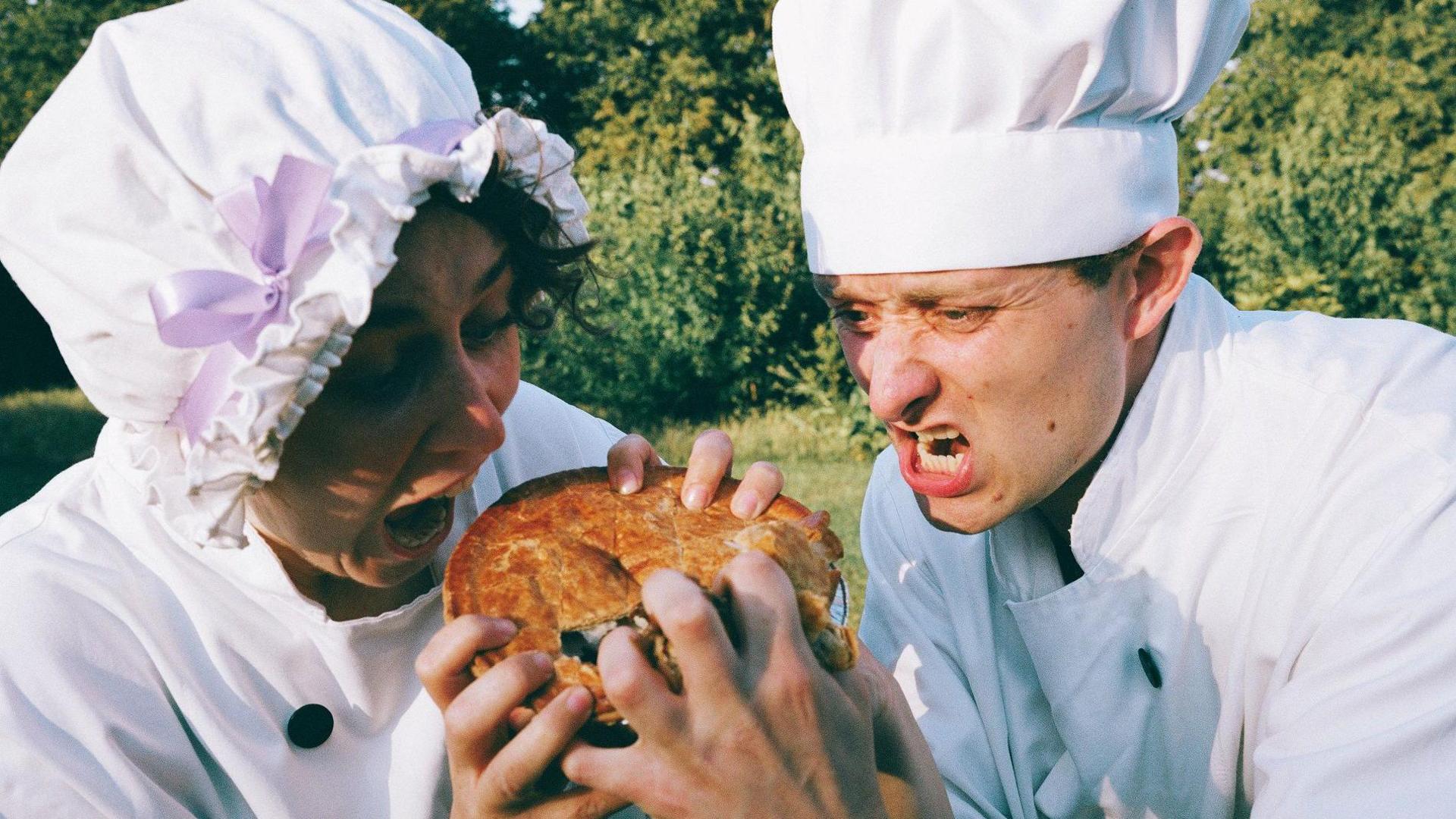
Bryn Walker and Megan Farquhar have written a play about Denby Dale's pies
- Published
For more than 200 years - between 1788 and 2000 - the village of Denby Dale in West Yorkshire celebrated all its biggest events with a giant pie.
In 1887, to celebrate Queen Victoria's Golden Jubilee the pie included beef, mutton, veal, lamb, pork, 64 rabbits, three hares, 42 fowls, 40 pigeons, 12 grouse, 21 ducks, four plovers, one turkey, five geese, two wild ducks, 108 small birds and 40 stone (250kg) of potatoes.
Now, Bryn Walker, who comes from the neighbouring village of Clayton West, and Megan Farquhar have written a play about the Denby Dale Pie's history.
"Denby Dale is a real piece of pie history and local village history that everyone needs to know about," says Mr Walker.
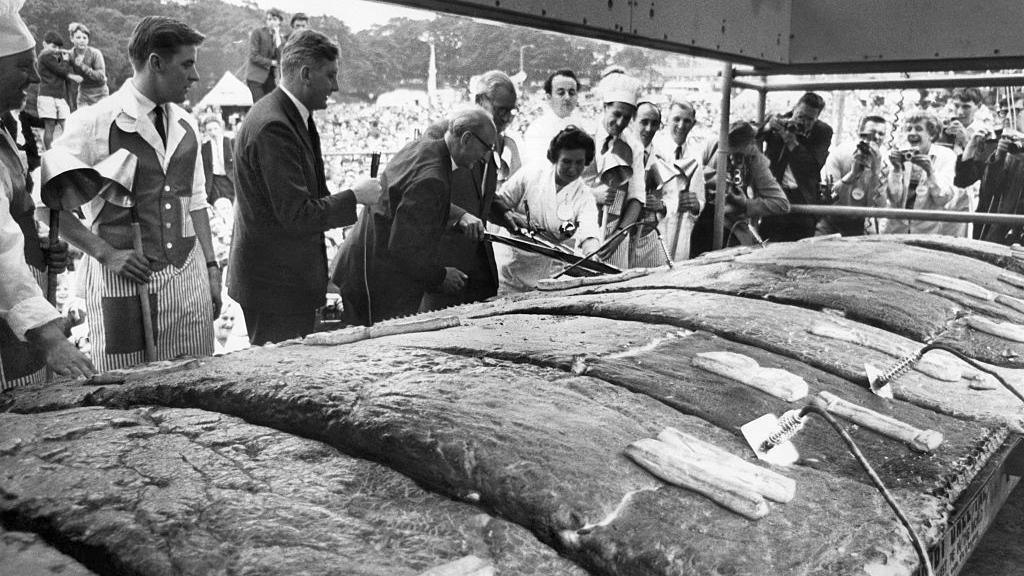
Villagers cut a pie to raise funds for a village community hall in 1964
"Chris Heath is a historian for Denby Dale, and especially the pies. I found his book and became a fan of Chris overnight."
Many of the stories featured in the play come from Mr Heath's book The History of the Denby Dale Pies, including Mr Walker's favourite, the 1846 pie created to celebrate the repeal of the Corn Laws.
"They went really big with it and created this ceremony. They got a wooden stage built and James or Joseph Piece - it differs in different historical facts - was meant to cut up the pie.
"He made a massive speech, and, according to some sources, he went on for too long and he fell in the pie and the event got cancelled and everyone rioted.
"Everyone tried to scrap the pieces of pie. People were grabbing the pie and running," he says.
According to rumours from the time, it was Mr Walker's ancestors of Clayton West who may have caused the riots.
"There's rumours that we were the saboteurs, because us Clayton Westerners had made a giant pudding to commemorate the ending of the Corn Laws," he says.
"Rumour has it that the Clayton Westerners kicked the posts of the stage and that's how it collapsed."
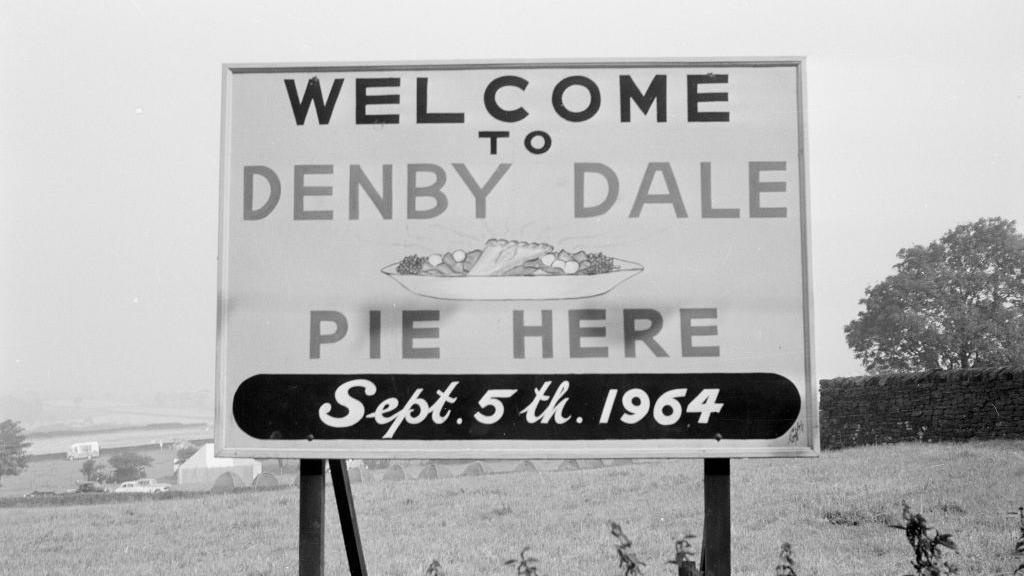
Giant pies were made in Denby Dale between 1788 and 2000
In the play, Mr Walker and Ms Farquhar star as fantastical "guardians of pie" who travel through time to experience the pastry behemoths.
"When I was younger, we'd hear about these pies. A relative might have seen one or two, if you're lucky," says Mr Walker.
"I got fascinated by it, by my own local history. So I started looking into it and all the stories are so whimsical and crazy. Like too good to be true.
"I thought: 'This would make a really good kind of like Blackadder anthology.'"
The play - entitled The Great Pies Of Denby Dale - is running for two nights at Bread and Roses Theatre in Clapham, south London on 17 and 18 August.
The pair dream of one day performing it at Denby Dale's Pie Hall – the village hall opened by the village's Pie Committee in 1972.
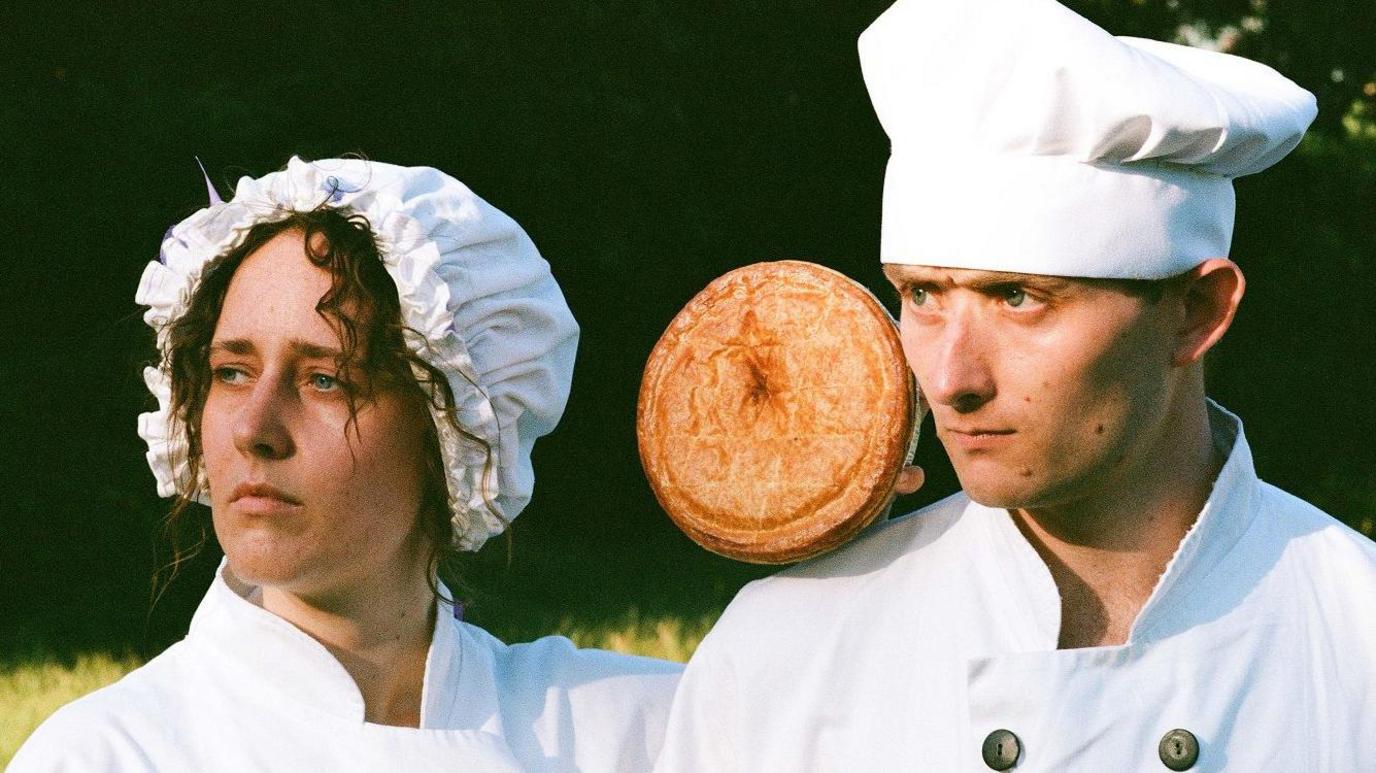
Bryn Walker and Megan Farquhar play "guardians of pie" who travel through time
For Mr Walker's co-author Ms Farquhar, from Lincoln, the tales of pie riots and tonnes of meat and veg have been an education.
"It's been really fun to learn about all this through the process," she says.
"It's weirdly well documented. It's almost a surprise at this point when we've got a question and we can't find it somewhere."
Her favourite tale is about a pie for the Queen's coronation in 1953 that never was.
"They tried to raise all these funds and get the committee for the Queen's coronation to let them make this big pie," she says.
"And they didn't have the funds for it, but they heard about it in Australia and the Food Standards Committee over there said: 'I know the British Food Standards wouldn't let you have all this meat to make your pie. We're willing to do it. We'll send it from Australia.'
"So they sent it across and it didn't arrive in time. So they'd already decided not to make the pie. The Queen didn't want the pie and the committee didn't want the pie.
"I always think that's so bittersweet that it didn't get made. It's like Romeo and Juliet, but for pie," she says.
The original Denby Dale Pie was baked in 1788 to commemorate King George III's recovery from a period of mental illness, a significant event for the nation at the time.
Denby Dale stopped making celebratory pies in 2000, with the final 40ft-long (12m) dish served to mark the new millennium.
No one is 100% sure why the tradition ended, but Mr Walker says he thinks the village would struggle to create one today, with changing eating habits and financial restraints.
Ms Farquhar adds that a giant meat pie just doesn't have the appeal today that it might have done in 1788.
"It's hard to make a pie that works for everyone because so many people don't eat meat," she says.
"I also, hilariously, am a vegetarian. How do you get a pie that big that allows for different people who maybe don't eat certain meats? It's very hard to make a pie that wouldn't be wasteful," she says.
Mr Walker believes he may have the answer.
"There was an old kind of pie where you could have your pudding in one corner. I wonder if you do the big pie you just have sections of it: a vegetable section, a vegan section and the meat section," he says.
"You've solved it," says Ms Farquhar. "Denby Dale need to make another big pie."
Get in touch
Tell us which stories we should cover in Yorkshire
Listen to highlights from West Yorkshire on BBC Sounds, catch up with the latest episode of Look North.
Related topics
Related stories
- Published28 January 2020
